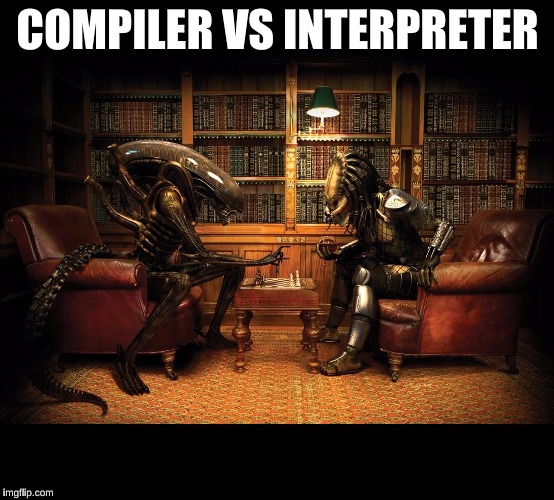Recently I had some issues with Kafka client in Python. I wanted to write
a Kafka event consumer, which will be able to stop gracefully
on SIGTERM or SIGINT signal.
The other requirement is to be able to run multiple instances of this consumer.
I decided to use the newest python-kafka library - currently version 1.3.3. But maybe let’s start from what actually is this Kafka.
Some info on Kafka and python-kafka
Before we start here is an simple overview on Kafka and python-kafka library. If you know any basics just skip this part.
Very short overview on Apache Kafka
Kafka is a distributed streaming platform created by Apache. It uses its own protocol called kafka. It’s quite similar to publish-subscribe model like in MQTT protocol, but also uses queue concepts like in RabbitMQ (AMPQ protocol). We can say that it’s a generalization of publish-subscribe and queue model.
In regular queue, event can go to only one subscriber, then it’s gone - in Kafka it will go to all subscribers. On the other hand in publish-subscribe model, scaling is much harder. In Kafka they resolved this issue with scaling somehow (I don’t know yet how!). As it supposed to be short, I’ll write more about Kafka in future.
Very short overview on python-kafka
As Kafka is using publish-subscribe model - client for it needs an event consumer and an event producer. Library python-kafka which is a Python client for Kafka, according to documentation consist of:
kafka.KafkaConsumer- it should consume Kafka events (so it’s a subscriber)kafka.KafkaProducer- for producing Kafka events
Also there is kafka.KafkaClient which is used by both of them - it shouldn’t
be used explicitly.
If you look to a documentation page or old versions of this library, there
are also: kafka.SimpleConsumer and kafka.SimpleProducer - they
are to be deprecated soon, so I’m not going to use them.
Graceful exit
I wanted to write a Kafka event consumer, which
will be able to stop gracefully
on SIGTERM or SIGINT signal. By stop gracefully I mean here
that I’ll use kafka.KafkaConsumer.close() - it’s rightful method for closing
consumer.
I had two approaches:
- Using
kafka.KafkaConsumerin thread - Use
kafka.KafkaConsumerexplicitly
Thread approach
To be able to close my consumer I decided to start from
putting kafka.KafkaConsumer into a thread.
I created a Consumer class which was my thread class. It
was supposed to run kafka.KafkaConsumer in it:
import logging
import signal
import threading
from kafka import KafkaConsumer
logger = logging.getLogger(__name__)
class Consumer(threading.Thread):
def __init__(self, name):
super(Consumer, self).__init__(name=name)
topics = ['creator_topic']
self.consumer = KafkaConsumer(*topics,
bootstrap_servers=['localhost:9092'],
group_id='dev')
self.should_stop = False
def run(self):
for message in self.consumer:
if self.should_stop:
self.consumer.close()
break
logger.info(message)
# Do sth about message
self.consumer.close()
def exit_gracefully(self, sig):
logger.info("Closing %s because received %s", self.name, sig)
self.should_stop = True
def exit_gracefully(sig, threads):
logger.info("Exiting %s", threads)
for t in threads:
t.exit_gracefully(sig)
t.join()
def main():
consumer_threads = [Consumer('c1'), Consumer('c2')]
signal.signal(signal.SIGINT,
lambda sig, _: exit_gracefully(sig, consumer_threads))
signal.signal(signal.SIGTERM,
lambda sig, _: exit_gracefully(sig, consumer_threads))
for consumer_thread in consumer_threads:
consumer_thread.start()After receiving SIGINT or SIGTERM all running threads were to be marked with
should_stop flag. With this flag set, loop in run for each thread was supposed
to stop. Everything was fine, except that they stopped only after receiving
next message. This is because kafka.KafkaConsumer is actually an iterator.
Anyway, when I was debugging I realized it’s not a good approach at all, because
in kafka.KafkaClient class in file client_async.py there is a small comment:
This class is not thread-safe!
I had to study almost all consumer related code of this library to find it. Also I could read whole documentation to find it - it was quite hidden. I’m not sure why they didn’t stress it more.
So, I had to change my approach.
Using kafka.KafkaConsumer explicitly
Still I needed some mechanism to be able to stop iteration of loop like this:
for message in self.consumer: # instance of kafka.KafkaConsumer
logger.info(message)
# Do sth about message
self.consumer.close()Because kafka.KafkaConsumer is deriving from six.Iterator (so Iterator compatible
with both Python 2 and Python 3), it implements __next__ method:
# kafka lib, group.py,
class KafkaConsumer(six.Iterator):
# ...
def __next__(self):
if not self._iterator:
self._iterator = self._message_generator()
self._set_consumer_timeout()
try:
return next(self._iterator)
except StopIteration:
self._iterator = None
raiseIt’s clearly written that iteration (waiting for next messages mechanism) will
stop when StopIteration exception will be thrown. So I changed my
previous code a bit.
My Consumer now derives from kafka.KafkaConsumer (so it’s not a thread anymore!)
and has methods run and exit_gracefully. Method run runs a message iterator,
method exit_gracefully throws StopIteration exception to finish
message iterator loop:
import logging
import signal
from kafka import KafkaConsumer
logger = logging.getLogger(__name__)
class Consumer(KafkaConsumer):
def __init__(self, topics, name):
super(Consumer, self).__init__(*topics,
bootstrap_servers=['localhost:9092'],
group_id='dev')
self.name = name
def run(self):
for message in self:
logger.info(message)
logger.info("Iteration stopped in %s", self.name)
self.close()
def exit_gracefully(self, sig):
logger.info("Exiting %s gracefully because got signal %s.",
self.name, sig)
raise StopIteration("Closing")
def main():
topics = ['creator_topic']
consumer = Consumer(topics, 'c1')
signal.signal(signal.SIGINT,
lambda sig, _: consumer.exit_graceully(sig))
signal.signal(signal.SIGTERM,
lambda sig, _: consumer.exit_gracefully(sig))
consumer.run()When receiving signal SIGTERM or SIGINT exit_gracefully is run. It raises
StopIteration which stops an iterator loop, after loop there is self.close()
instruction, which closes kafka consumer properly.
What about multiple consumers?
Solution above doesn’t work as expected when having more than one consumer.
Let’s say we want to close consumers on received SIGTERM or SIGINT
signal in loop like this:
def close_all(sig, consumers):
for c in consumers:
c.exit_gracefully(sig)
def main():
topics = ['creator_topic']
consumer1 = Consumer(topics, 'c1')
consumer2 = Consumer(topics, 'c2')
consumers = [consumer1, consumer2]
signal.signal(signal.SIGINT,
lambda sig, _: close_all(sig, consumers))
signal.signal(signal.SIGTERM,
lambda sig, _: close_all(sig, consumers))
for c in consumers:
c.run()It’s impossible, because raised StopIteration exception
is propagated in code of __next__ in kafka.KafkaConsumer -
I need to interrupt (send SIGINT)
as many times as I’ve consumers to stop this program. I’ve no idea how to
solve this… Any ideas?
Some thoughts
They say we should always close everything gracefully:
close sockets, close connections, close files, etc. But sometimes it’s not so
easy to do this properly. I made so big effort, spent so much time, to just
run kafka.KafkaConsumer.close()
method and still I’m not so successful… I’ve a partial success, because
I’m able to close all consumers, but still I’ve to send a few interrupt signals
instead of one.




Leave a Comment